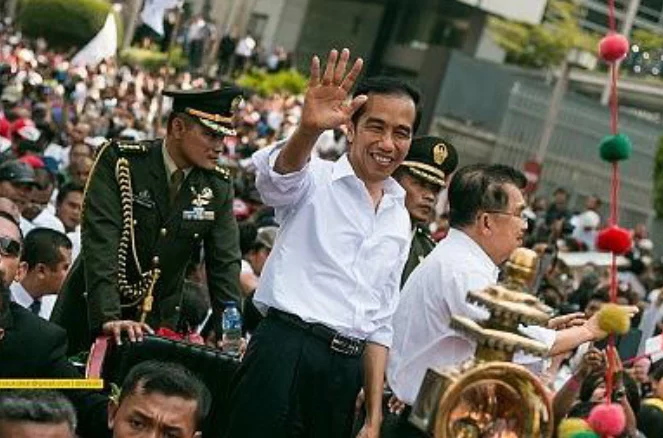With the campaign period kicking off in September, much attention is now directed at the prospects of President Joko “Jokowi” Widodo and Prabowo Subianto to win Indonesia’s upcoming presidential election, set to be held in April 2019.
Early campaigns show signs that both camps are targeting millennial voters, those within the age range 17-35, amounting to 79 million individuals or 42 percent of total registered voters, based on data in early September. Jokowi’s actions during the Asian Games and Prabowo’s running mate Sandiaga Uno’s engagement with youth groups are testaments to this.
While the political weight of millennials must be acknowledged, political calculations must not overrate the impact of millennial votes on the election outcome. Voters above 35 years still make up more than half of the total pool of registered voters.
Indonesian millennials are often misconceived as a monolithic entity that would respond positively to flashy and sensational political campaigns. Yet, millennials are hardly unanimous when it comes to political participation.
Some consider millennials as mostly apolitical, based on survey findings of low young voter turnout in the 2014 election. But historically, Indonesian youth has played a crucial role at many critical junctures of the country’s political process such as the Sumpah Pemuda (the Youth Pledge) and the 1998 reformasi (reformation) movement.
In the modern context, political participation cannot just be measured through conventional means of casting ballots. Activities such as participating in political volunteerism, social movements, protest and sharing campaign-related materials on social media are also forms of political expression — which active and tech-savvy youths engage in.
Additionally, political participation and the preferences of millennials are influenced by a plethora of factors including the urban and rural divide, educational background and religiosity, among others. For instance, in 2010 only about 6 percent of Indonesian youth obtained university degrees. As such, certain political campaigns merely resonate with specific segments of the youth.
Beyond the appeal of edgy, non-conventional campaign styles, there are also other factors impacting millennials’ political preferences.
Preconceived ideas toward candidates could play a big role in determining voter choices, irrespective of the programs the candidates offer. The effect of confirmation bias in next year’s presidential election can be further explored given the same candidates are running for the second time.
Furthermore, an online survey reveals that youth perceive themselves to be self-sufficient in making political choices, free from the influence of their peers and family members. However, they might have underestimated the influence of social interaction in their political choices. Some experts indeed believe that parents have tremendous influence in their children’s political inclinations.
In Indonesia’s close-knit communities, local gatherings like mosque congregations or study groups could affect the attitude pf people towards political candidates. Information that circulates in these communities might be biased toward certain candidates, affecting the political viewpoint of youth.
Another factor that should be taken into account is media bias. The frequent exposure of young voters to media content that portrays one particular candidate positively could persuade them to vote in the respective candidate’s favor. The recent Cambridge Analytica scandal exemplifies the exploitation of one’s personal data and online activities to enable tailoring of personalized campaigns.
These raise fundamental questions about the nation’s democratic process: How much freedom do young voters truly possess to make their own political choices? How shall this freedom be nurtured?
Of course, an ideal democracy would have voters be rational — acknowledging the possibilities of the biases and refrain from using cognitive shortcuts in their decisions. For democracy to work, voters need to be politically literate as early as possible, and make it a habit to analyze political campaigns objectively.
There are positive developments in the run up to the 2019 Indonesian elections. In contrast to the 2017 Jakarta Gubernatorial Election, identity politics have slowly faltered, and the candidates’ programs and policies are gradually occupying the dominant election narratives. Nevertheless, it is still far from ideal; programmatic campaigns also pave the way in promoting populist policies without sound economic rationale.
All in all, the quality of Indonesian democracy in the future rests in the hands of millennials. For politicians to bring a programmatic agenda to the table, there needs to be a sufficient demand for it which rational voters can fulfil. Partai Solidaritas Indonesia/Indonesian Solidarity Party (PSI) — a millennial oriented party — has been a propagator of this point.
However, political participation of millennials should not be seasonal. Millennials need to go the extra mile and continuously immerse themselves in the political process. Debates surrounding Indonesian politics should not just revolve around personalities of the candidates during election season, but more importantly, elements of democracy that are prone to threats, such as the control over abuse of power, transparency, and political tolerance.





